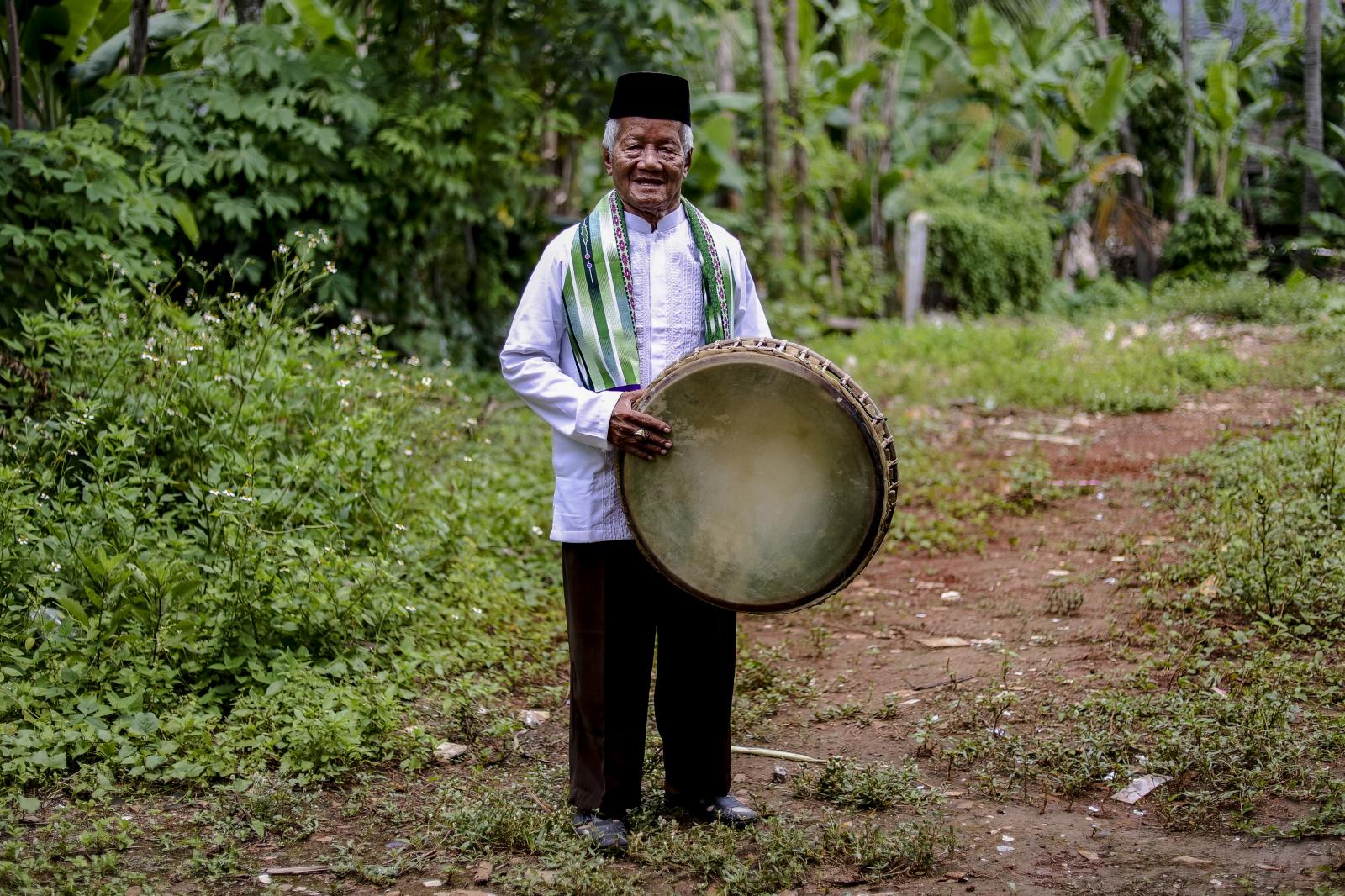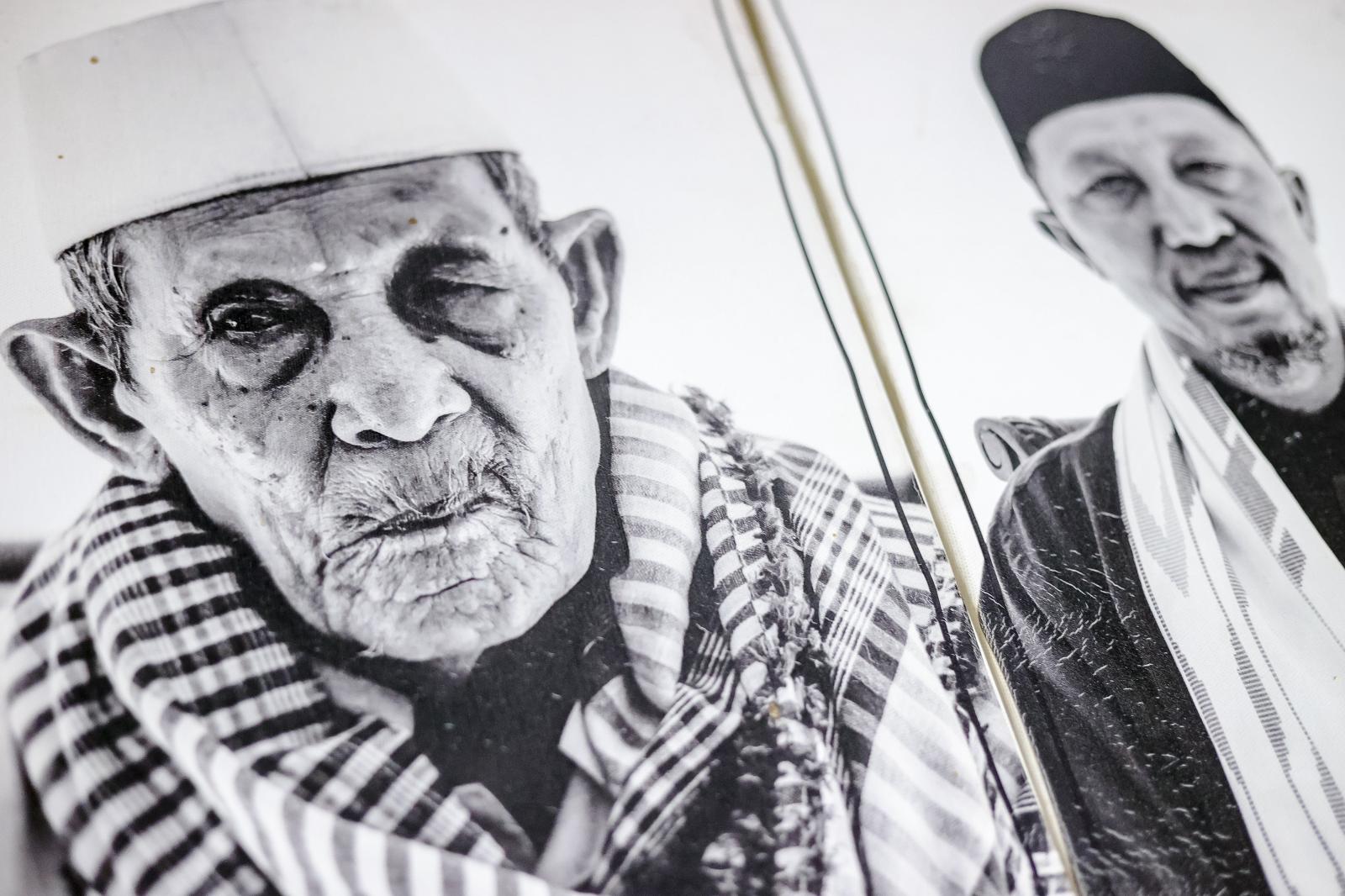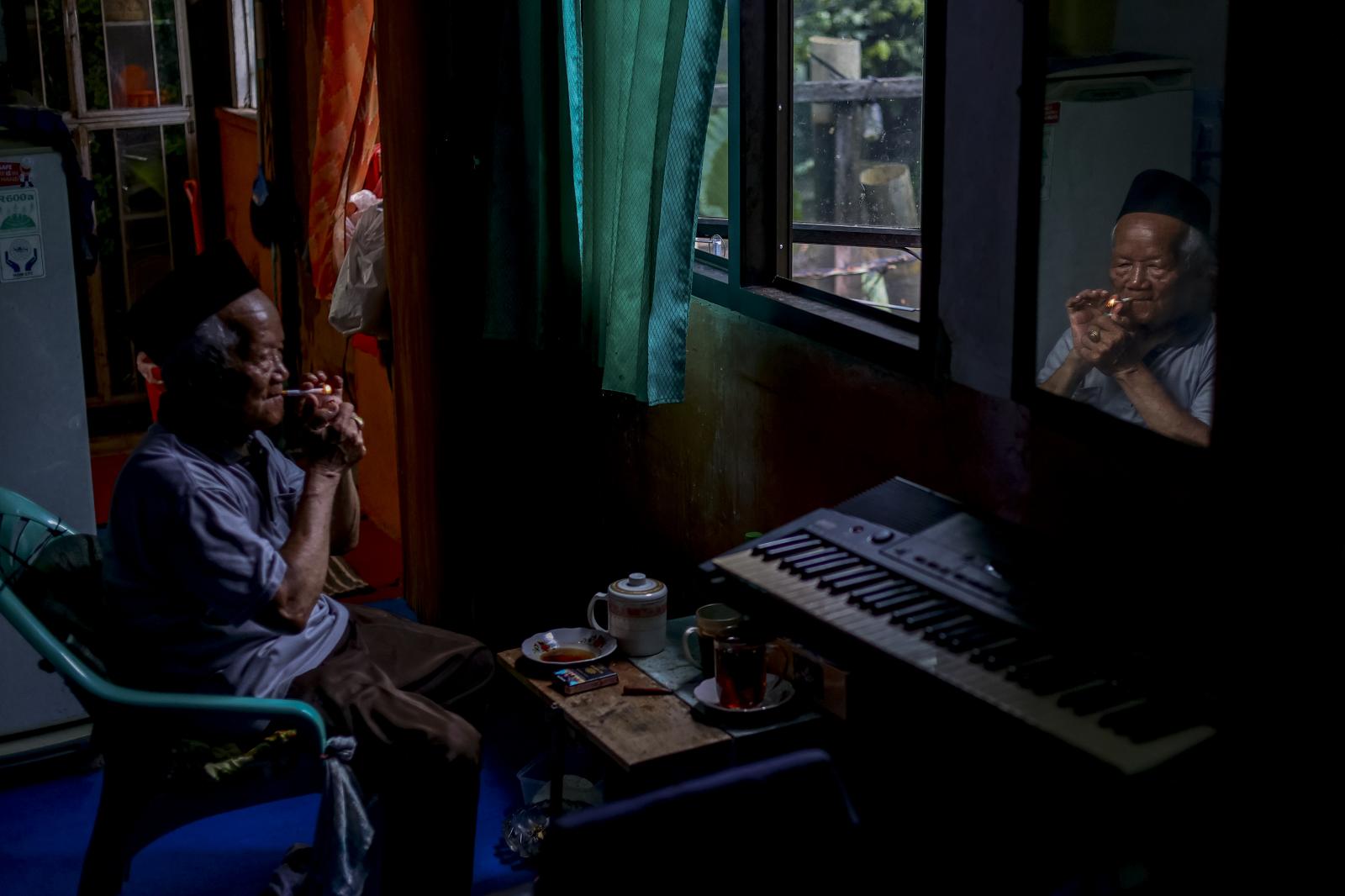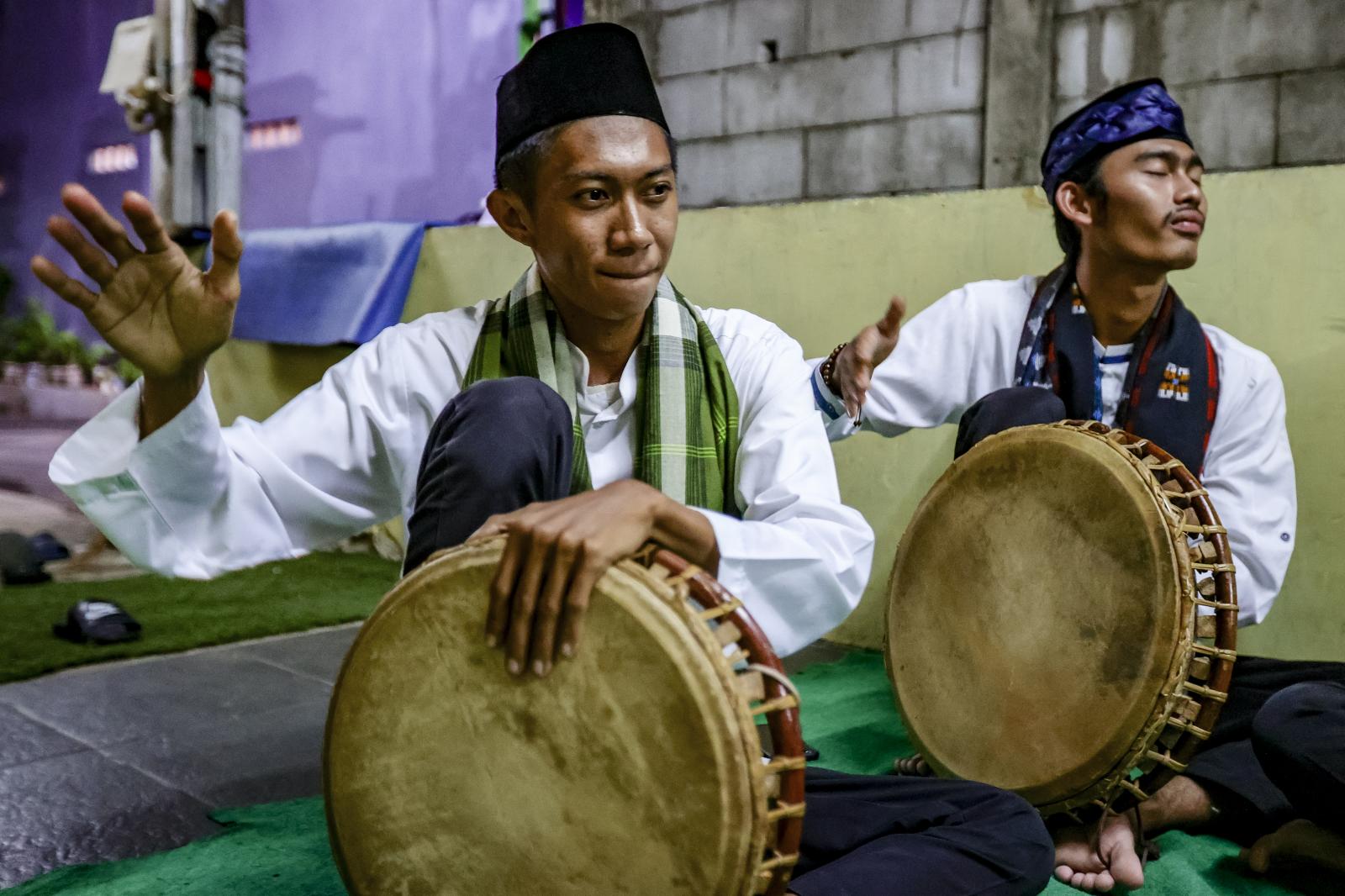Public Project
Spread Love Through Melody – Preserving The Old Betawi Musical Tradition
Summary
Rebana Biang, the instruments have been used by the Betawi community for the past 200 years. Today, the Ciganjur's last group Sanggar Lestari Budaya is preserving their tradition.
“Kalau ada, kalau ada jarum yang patah.
Jangan disimpan, jangan disimpan di dalam peti.
Kalau ada, kalau ada kata yang salah.
Jangan disimpan, jangan disimpan di dalam hati”
"If there is, if there is a broken needle.
Don't keep it, don't keep it in crate.
If there is, if there is a wrong word.
Don't keep it, don't keep it in your heart
After a hiatus of almost two years due to the COVID-19 pandemic, the Sanggar Budaya Rebana Biang musical group start to perform again. The Sholawat Prophet islamic chant louds alongside the sound of tambourine can be heard from a corner of a narrow alley in the Cipedak area, Jagakarsa, South Jakarta.
Three Century Tambourine
Three centuries is not a short time to maintain tradition. Rebana Biang has become the culture of the Ciganjur people since 1825. Legend says, their three heirloom tambourines were brought directly from Banten, West Java by the grandson of Sultan Hasanuddin, the Second King of the Kingdom of Banten. At that time, Rebana Biang was taught two times a week. Oral history says that the Betawi warrior, Si Pitung, was the second generation of the Rebana Biang group in Ciganjur. The existence of this traditional music group has been fading due to the popularity of dangdut and Malaysian music in the 60-70s. However, not long after, the Governor of Jakarta, Ali Sadikin appointed the Rebana Biang as one of the great Betawi cultures in 1974.
The Last Craftsman
H. Abdul Rahman is the last tambourine craftsman in Ciganjur. Although his eyesight start to diminish due to an eye disease, his 80-years old hands are still very skilled and nimble at making and repairing tambourines. "It takes two weeks and costs Rp 5,000,0000 ($347) for a set of tambourines. Tambourine kotek, gendung and biang", he said at his workshop. "I took raw materials such as wood and sheepskin from Kampung Loning in Kebumen, Central Java," he added.
Maintaining Tradition
In the beginning, the knowledge of this music and tradition was only passed down from family relations and often performed at family events such as Betawi traditional wedding, circumcision celebration and welcoming guest. It was only in the 2000s that the great-grandson of its founder, Mohamad Natsir, started to teach the music to those who were not his kin. Together with his father from the third generation, H. Engkos, they worked hand in hand to teach Rebana Biang to young generations. The highlight was in 2012 when their group, now has seven members, all between the ages of 25 and 30, received an invitation from the government came to Australia. They perform went to a roadshow in Melbourne, Canberra and Sidney for two weeks.
After H. Engkos and H. Mohamad Natsir passed away in 2021 and 2022, the fate of the Rebana Biang group is in the hands of the fifth generation. They develop musicality and combine traditional melody with more popular Islamic rhymes. They also uploading digital content on social media. Some of them come up with the idea to combine tambourine with other musical instruments cush as violin and accordion to provide brand new musical experience to the stage.
David Rahman, the mastermind behind this experiment said he doesn't want Rebana Biang lost its identity. “I still preserve the original way, nothing has been changed. Collaboration is used to attract people”, he said. According to David, a tambourine player must be able to play 12 traditional way of motifs before perform the "new way". He hopes that Rebana Biang will be recognized again as one of the great traditional musical culture in Jakarta. “Rebana Biang must be included in the school curriculum. Betawi (culture) is richer than we know", he added.
1,812



















